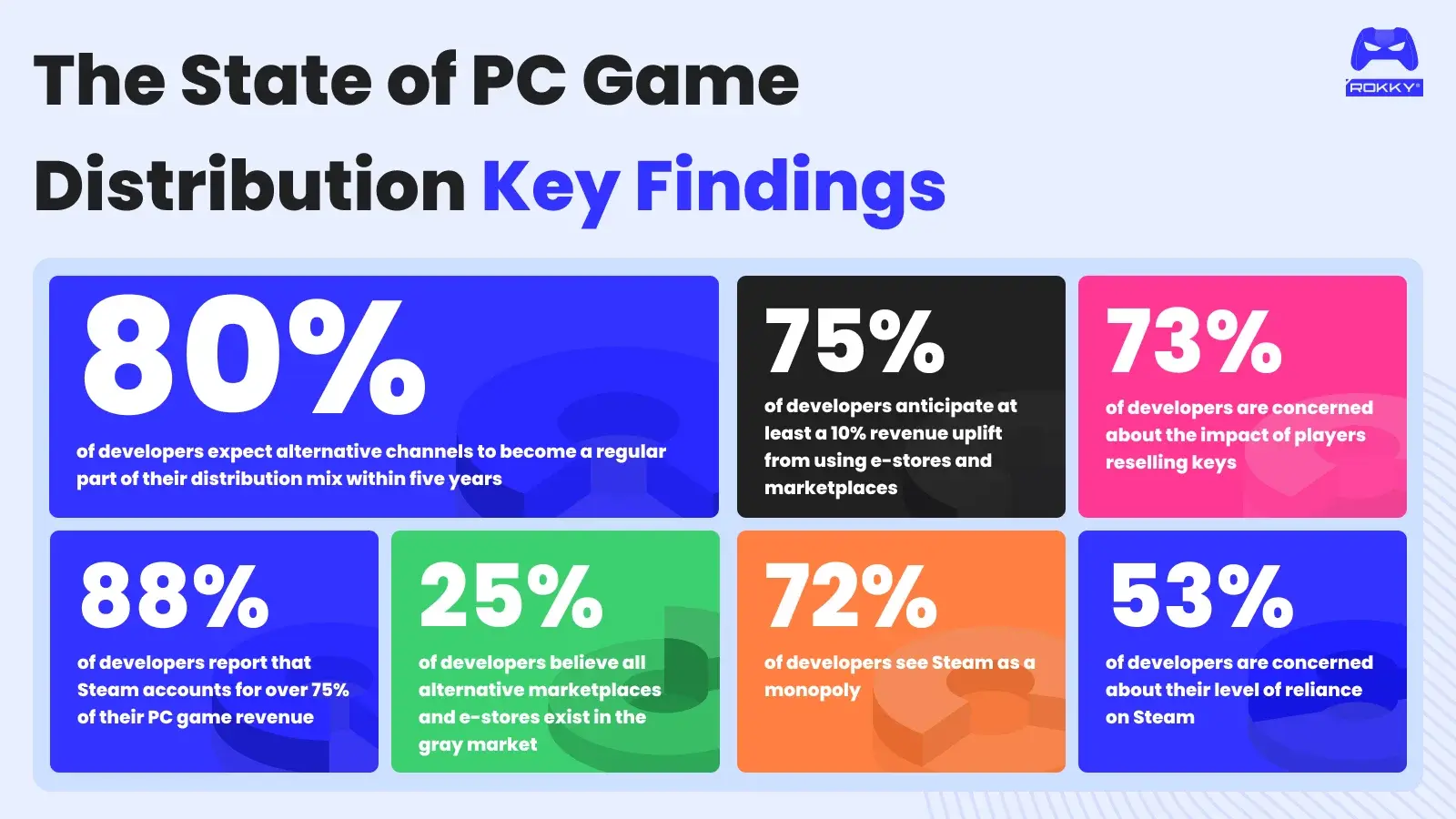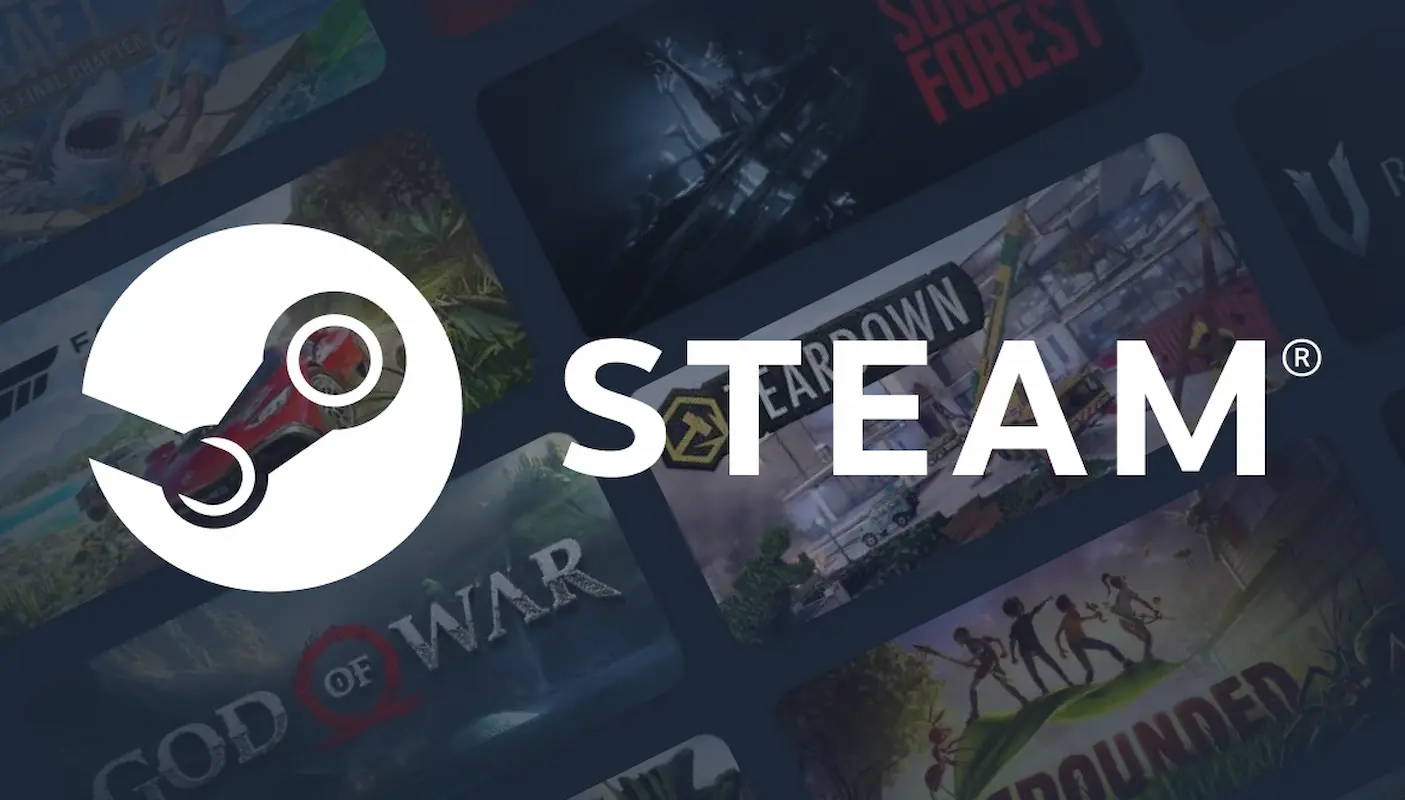Steam may still be the king of PC gaming, but for many developers, that is starting to feel like a problem. A new report paints a clear picture of where things stand. Players today have more storefront options than ever, but Steam continues to dominate almost every corner of the market.
Steam’s Grip on PC Gaming
For the study, over 300 game industry managers across the UK and US were surveyed, and a massive 88% of studios say Steam accounts for more than 75% of their total revenue.
That is not all, 72% of developers believe Steam really has the monopoly over PC games, and 53% admit they are “worried about relying too heavily” on Valve’s platform.
So even if Steam remains the go-to destination for players, it is also becoming a point of concern for studios who fear being too dependent on a single storefront.

The Struggles Behind the Numbers
Developers say the biggest challenges in PC game sales today are:
- 40% due to the rise of free-to-play games
- 35% due to market saturation and competition
- 33% due to lack of discoverability
Essentially, even if your game lands on Steam, getting noticed is harder than ever.
Where Studios Are Turning Instead
Even is Steam is still dominant, developers are slowly turning towards other platforms:
- 48% have released games on the Epic Games Store
- 38% use Fanatical or Humble Bundle
- 30% distribute via marketplaces like G2A or Kinguin
- 10% have used GOG
- 8% use itch.io
Larger studios tend to prefer Epic or Xbox’s PC store, but smaller indies often favor Itch.io because it has more flexibility.
Surprisingly, about 32% of devs still publish physical editions, from discs and cartridges to “key-in-box” releases. This gives them better control over pricing and promotions.
What Is Next for PC Game Distribution
Despite the challenges, studios are not giving up on Steam, but they are definitely planning smarter.
- 80% say they plan to use alternative channels alongside Steam in the next five years.
- 75% expect at least a 10% revenue increase by expanding into multiple stores.
That said, there are still concerns about gray market risks and pricing control when distributing through third-party sites.
The Industry’s Take
Rokky CEO Vadim Andreev, who commissioned the report, summed it up well:
“PC game distribution is becoming more diverse and complex. Opportunities and challenges coexist as traditional platforms remain relevant. Understanding the changing ecosystem is more important than ever.“
In short, Steam is not going anywhere, but more studios are realizing they can not afford to keep all their games in one single place.
For more information or guides, keep an eye on our latest news!
